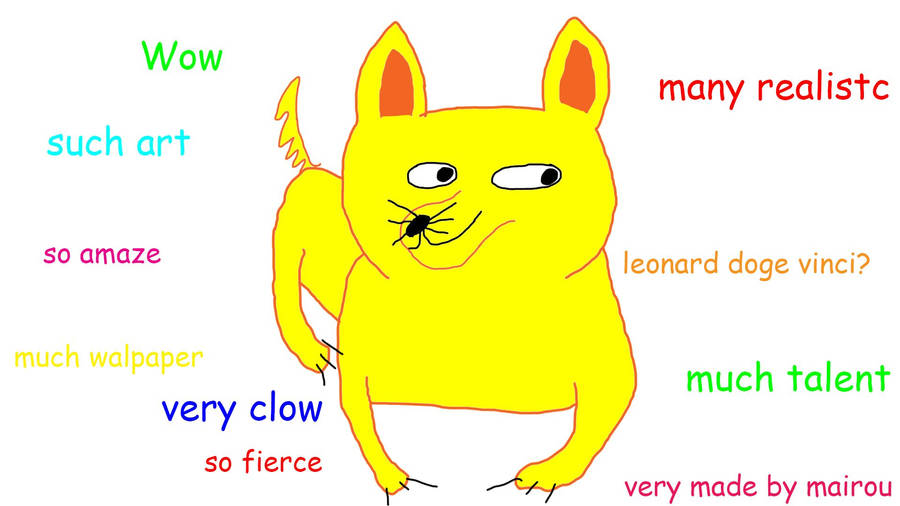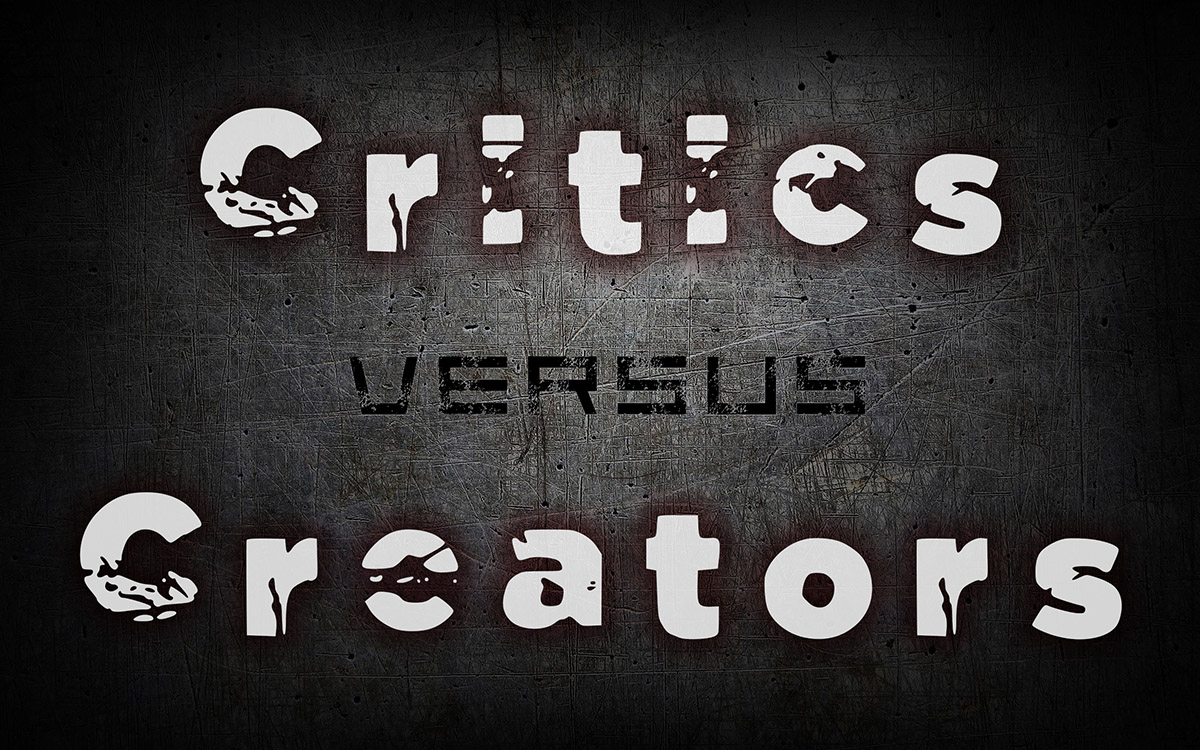About a week ago, news broke that indie game development team, Digital Homicide was suing gaming critic Jim Sterling for assault, libel, and slander — a lawsuit which accumulates to a grand total of $10 million in damages.
This inevitable confrontation has been building over the course of two years, ever since Jim Sterling reviewed the absolutely terrible Steam game The Slaughtering Grounds. He called it a ‘worst game of the year contender’ and pointed out the painful asset flipping in the game.
Since then, the Sterling and the developer have been butting manly horns. Digital Homicide would make a game, Jim Sterling would cover it, say how bad it is, and Digital Homicide would flip its shit – rinse and repeat.
The situation isn’t as far-fetched as some would believe. Creators and critics have been butting heads since the dawn of time, or at least since Steam opened its doors to any sort of vomit people could throw up.
But now the question is; who is right? The critic or the creator?
The critic’s side
First off, what is a critic?
“A person who judges the merits of literary or artistic works, especially one who does so professionally.”
Or:
“A person who expresses an unfavourable opinion of something.”
Most critics would say the fall into the former category. They are judging the merits of a product — like movies, games, books, and music — and are not really expressing an unfavorable opinion of everything they encounter. With that covered, where do they stand?
From a critic’s standpoint, critiquing a game is just another day at the office. Games are just products that are easily forgotten in the tidal wave of content they deal with daily. They don’t always care what they’re looking at, they just want to play it and move on. So it’s not surprising to find many critics develop a very cynical, and perhaps snooty attitude.

Being disappointed every day, and having people berate you for being so, can’t be a lot of fun. To an extent, it’s their right to get a little pissed off when developers keep bombarding them with sh*t and expecting golden reviews.
However, critics are protected by the DMCA act — which ensures that freedom of speech is translated into a digital medium. This means that a critic’s review will always be seen as Fair Use, so long as they add something new to the footage they are using, like a review or general opinion.
So according to the law, and popular opinion, Jim Sterling should be safe. But are critics really critiquing games?
Critique or criticism?
There is obviously a big difference between these two. Critiquing a game is in accordance with the definition above: discussing its merits, how it can be improved, and explaining where the developer went wrong in a constructive way. Criticizing is — in essence — destructive, because you are breaking down what a person has built or created.

Many reviewers have been sliding down the latter slope, rather than climbing the former. Because at the end of the day, it is easier to criticize than to give thoughtful critique.
Calling a game a ‘worst game of the year contender’ is neither constructive nor productive for the gaming industry. But it is entertaining for your viewer, which is why most Youtubers, and critics alike, actively look for bad games.
Legally, most of them should be okay. It is not illegal to bad-mouth a game, if it is true. But does that mean the critic is morally right?
The creator’s side
What is a creator?
“A person or thing that brings something into existence.”
In this context, we replace ‘something’ with ‘games’ and we’re good to go. It doesn’t say it needs to be ‘good’, which literally means anyone can be a creator of something. So where do they stand?
From a creator’s standpoint, the game they make is their life, and sometimes their livelihood. It is — in cliche terms — their baby.
Oftentimes hours, days, and years are poured into it, along with blood, sweat, tears — and a lot of midnight pizza money. For developers, the criticism hits home, and it’s even more troubling for indie developers because their games are so near and dear to their hearts.

It’s unsurprising, then, to see these people get angry — really angry — when people harass, attack, and even laugh at them for trying to make a game.
Bad-mouthing games is damaging to a developer’s reputation. And famous YouTuber comments can have a ripple effect, as shown by the whole Pewdiepie debacle, and the bro-army harassment.
To rub even more salt in the wound, YouTubers make money from these reviews, and it just makes the developers even more frustrated. Their games are being torn apart, they are being insulted, laughed at, they are losing sales, and to top it off, the YouTuber is raking in the cash off their misery. Is it any surprise developers are getting a little pissed off by this?
Behind every game, story, artwork, sculpture, and song is just another person, who believes in their work as wholly as we do in ours. It is easy to form an opinion, but it takes effort to make something for people to enjoy.
So do creators have the moral high-ground? Not entirely.
Attitude problem
Independent creators can be some of the most pompous, arrogant and self-indulgent pricks we’ve ever come across in the gaming industry. They are sensitive, often overly so, and they have absolutely no idea how to take any sort of criticism without running to mummy.
Anyone remember Phil Fish?

This is, of course, not representative of all indie game developers. In fact, most of them are well-balanced and pretty cool individuals. But like they say, one bad game can crash an industry, and people are getting pretty tired of these big babies.
Teenagers and inept coders often try their hands at something, because it’s a wish or a want. Being made of fun of, harassed, and attacked can turn the nicest of people into indignant assholes. Is it an excuse? No, but it something to keep in mind when sending hate-mail to a developer.
Conclusion
So who’s wrong and who’s right?
Both are to blame for this.
Critics have the law on their side, that’s a given. However, they seem to have forgotten what the difference is between critiquing and just plain criticizing. Their reviews of bad games are inherently negative, and sometimes downright vindictive.
Beating a bad game into dust for ‘entertainment’ is not productive.
But the best thing about honest, critical reviews is quality control. If enough reviewers pan a game, then most creators will take this to heart and try NOT to do this in their own game. It doesn’t always work, of course, but in general, public opinion has forced the industry to grow into what we see today. I’m not saying it’s perfect — there will always be companies like Konami, Ubisoft and EA that will give people what they hate, simply because they can. But there is no denying it does have an effect.
Indie creators, in turn, are continuously pushing the boundaries of the industry. Their ideas are not shackled by companies, and the more they make, the greater the potential is for the industry. And they have a right to feel insulted when projects they have worked on for years, are completely torn apart by a smug YouTuber.
But creators do need to grow a thicker skin, they need to be able to take criticism from their players, and run with it. Having an arrogant attitude, ignoring the problem, and pretending you’re in the right won’t win you any favors — it just makes you look like a d*ck.
And if you want to get good reviews, make a good game. Learn from others’ mistakes, and for heaven’s sake, learn from your own.

Digital Homicide handled their situation poorly. They didn’t think their reactions through, and they steamrolled right through a wall they can’t fix. Just another Phil Fish. The moment you put a game up on Steam, you need to prepare yourself for criticism, no matter how much you love that cliched-baby.
Will Digital Homicide win the case? Personally, I hope not — that would be a huge blow for reviewers and critics alike, and they have enough problems with YouTube’s copyright system at the moment. On the other hand, it might just give reviewers license to be even more criticizing, cynical and negative than before.
We can only hope it works out for the best.

